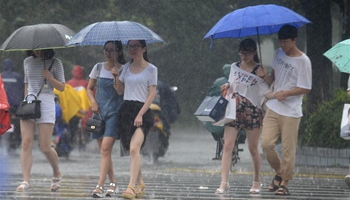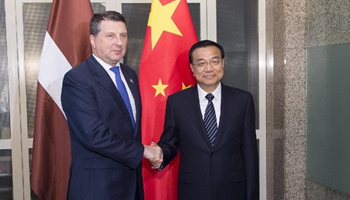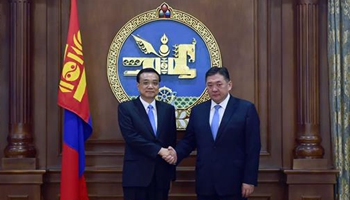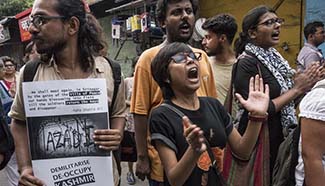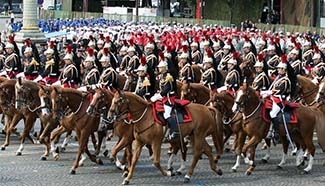BEIJING, July 15 (Xinhua) -- The International Court of Justice (ICJ) has made a rare announcement on its website, saying it's "a totally distinct institution" from the Permanent Court of Arbitration (PCA), under whose secretarial assistance, an arbitral tribunal has issued an award on the South China Sea dispute.
The five-member arbitral tribunal based in The Hague, the Netherlands, on Tuesday rendered its ill-grounded award, denying China's long-standing historic rights in the South China Sea.
Some Western media mistakenly believed that the tribunal was related to the ICJ, which is also based in The Hague, saying the tribunal was backed by the United Nations.
The United Nations made it clear earlier Wednesday that it has nothing to do with the PCA via China's twitter-like social media weibo.
Later, the official website of the ICJ announced that "the ICJ, which is a totally distinct institution, has had no involvement in the above mentioned case (the South China Sea arbitration)."
The ICJ, as the United Nations' principal judicial organ, was set up in June 1945 in accordance with the Charter of the United Nations.
The PCA, established by the 1899 Hague Convention, is not subordinate to the United Nations.
For the PCA, the arbitration and relevant actions should obey states' will, which makes the status of the PCA lower than the states'. Its arbitration is not a part of the international judicial system. Its arbitration may have some juridical validity, but it is far from the adjudication of the ICJ in terms of sanctity and solemnity. Therefore, the PCA is not the best mechanism to settle disputes between states.
On the contrary, once states agree to submit their disputes to the ICJ, the adjudication by the ICJ must be executed. According to the Charter of the United Nations, the UN Security Council has the authority to execute the adjudication.
When it comes to the relevant fees of the two organizations, the fees of the PCA's arbitration and the salary of the tribunals are paid by the parties in the arbitration. Meanwhile, in the ICJ, all the fees and salaries are paid by the United Nations.
As to the South China Sea case, the Philippine government has paid the tribunal for its own part as well as China's, since China has proclaimed its stance of non-acceptance of and non-participation in the case from the outset, because the tribunal has no jurisdiction over the case according to the United Nations Convention on the Law of the Sea (UNCLOS).
Due to the existence of the ICJ, the PCA is not a general international procedure to settle disputes any longer, as the PCA's status in international law is inferior to the states'.






